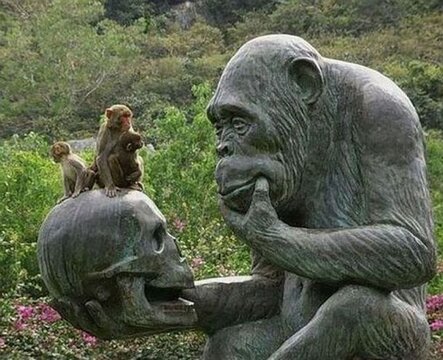quoting Pharoah
"The phenomenon of our experience is the property we identify as consciousness, which is why a reductive explanation of phenomenal experience would seem to explain consciousness. However, the specificity of our conscious experience tells us, that following a reductive explanation of phenomenal experience, questions as to the exact nature of consciousness remain unanswered.
We are still left with the question as to why each of us happens to be the individual we are, rather than anyone else. Nevertheless, the lack of observational reference does not prevent explorating quantum principles to explain the noumenon of consciousness. Indeed, this is an attractive prospect:
- It assigns value to the vocation of individual choice and free will.
- It identifies an evolutionary purpose to individual choice in terms of its effect on the path of consciousness.
- Advancing the concept could demonstrate that the consciousness state is irreconcilably instrumental in the formation of the physical fabric of the universe, thereby entwining our concept of consciousness with the intrinsic properties of our physics concepts both classical and quantum.
Despite the Hierarchical Systems Theory reductive explanation of phenomenal experience, one could interpret nature in the manner of a type-F monist (Chalmers,
2003) as consisting of entities with intrinsic quantum consciousness properties that stand in causal relation within a space-time manifold, where physics emerges from the relations between entities and consciousness emerges from their intrinsic nature."
"The phenomenon of our experience is the property we identify as consciousness, which is why a reductive explanation of phenomenal experience would seem to explain consciousness. However, the specificity of our conscious experience tells us, that following a reductive explanation of phenomenal experience, questions as to the exact nature of consciousness remain unanswered. We are still left with the question as to why each of us happens to be the individual we are, rather than anyone else."
smcder I think such questions
are answered following a reductive explanation of phenomenal experience (if and when I see one!). There is no remaining question:
why each of us happens to be the individual we are, rather than anyone else
The individual we are
is "anyone else" and "everyone else" - which statement I think provides the observational reference you feel is lacking.
I'm afraid it gets worse from here, for me, as it begins to take on a "God of the gaps" flavor ... well, we may have explained phenomenal consciousness, but noumenal consciousness is a bit tricky - and even if we get quantum on it that's better because it's a bit murkier on the reductionist/deterministic scale (which I don't think it is) - and we can still draw some humanistic conclusions from out of the void:
Pharaoh
Indeed, this is an attractive prospect:
- It assigns value to the vocation of individual choice and free will.
smcder to me this is muddled, individual choice and free will would not need value assigned as they are, on modern definition, what assigns value.
2. It identifies an evolutionary purpose to individual choice in terms of its effect on the path of consciousness.
smcder I
t's hard to see how, on a reductive explanation, you can separate out the effect of individual choice on the path of consciousness from the effect of the path of consciousness on individual choice - they are, at best, inter-effective ... but this identifies as a humanistic goal - individual influence or power over ... well, we can just stop there.
3. Advancing the concept could demonstrate that the consciousness state is irreconcilably instrumental in the formation of the physical fabric of the universe, thereby entwining our concept of consciousness with the intrinsic properties of our physics concepts both classical and quantum.
smcder see the objection to #2. I would say irreconcilably instrumental and irreconcilably intrument-
ed "entwining" yes - but that doesn't make us masters of our fate.
pharoah Despite the Hierarchical Systems Theory reductive explanation of phenomenal experience, one could interpret nature in the manner of a type-F monist (Chalmers,
2003) as consisting of entities with intrinsic quantum consciousness properties that stand in causal relation within a space-time manifold, where physics emerges from the relations between entities and consciousness emerges from their intrinsic nature."
Hand-wavy ... at least, I am more and more discontent with dual aspect theories. Specifcially, I don't like the two sides of a coined-ness, there's some stuff here oh and, there's some stuff
there on the back.
In short, its hard to separate out a reductionist account from a deterministic one - intrinsic/extrinsic intereffectuality is at best two sides of one particle whirling in the void.
To get to the various attractive aspects, the way my thinking is going nowadays
, requires a non-reductionist
account. Not that there no non-reductionist
explanations - but rather that they lead, if one is not disciplined, down a reductive path to Scrooge's bit of undigested potato.
What the is the vocation of individual choice and free will? To be meaningful, it has to exist at that level of explanation - surely it is composed of states of mind and brain activity and physical arrangements of material, but if it exerts no causal force in itself, it is no vocation, not free and therefore unchosen. Which is as much as saying that free will
isn't composed of states of mind and brain activity and physical arrangements of material. The test of our acceptance of that is whether we can say it with the equal facility that we say that states of mind, brain activity and physical arrangements of material aren't composed of free will.


